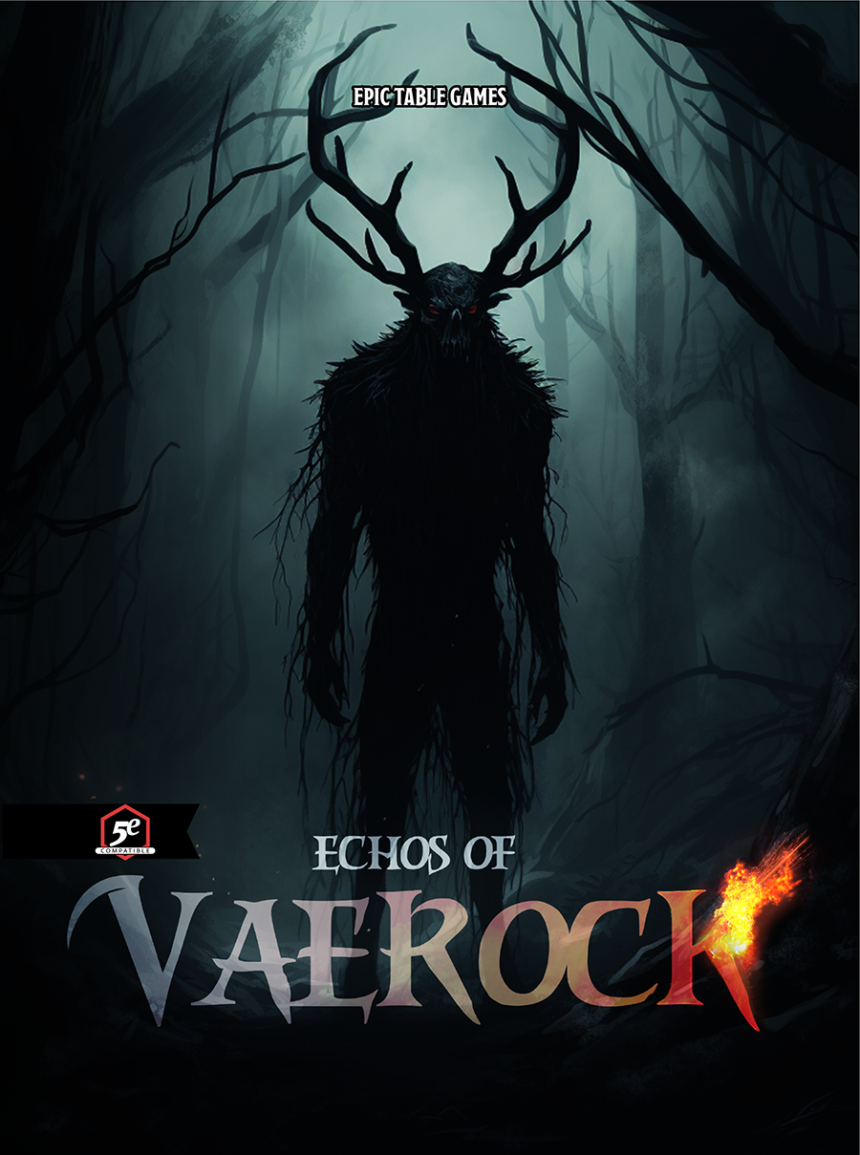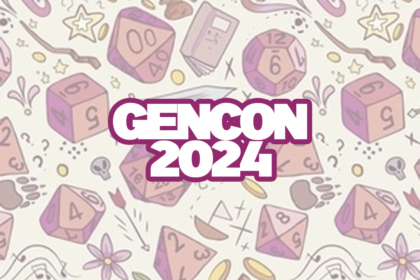Hello everyone, and welcome back to your seat at the Epic Table! I am very, very excited about today’s topic, because it touches on one of my great love affairs in gaming. Today, we’re going to be looking at Jamais Vu—a game of detection, forgetting, and outrageousness.
No Truce With The Furies
Let’s get one thing absolutely straight: this is a Disco Elysium RPG. (Note: it absolutely breaks my heart to say this, but unless you’re reading this before noon on the day it’s published, a 75% off sale for it just ended. I’d recommend putting it on a wishlist; it goes on sale pretty frequently.) If you haven’t heard of it… shit, I don’t know what to tell you. Disco Elysium is—and I am as aware of the enormity of this claim as I am serious about making it—arguably the best digital RPG ever made and one of the best games ever made. It’s fantastic, I’ve spent an unbelievable amount of time playing it (100% achievements, thank you very much), and I highly recommend it to literally everyone.
I’d especially recommend playing it if you’re interested in Jamais Vu. It’s impossible to get around: this whole system is way easier to grok if you’ve played Disco Elysium. I’m honestly not sure how well some of the ideas in it are going to land if you haven’t, because I’m so steeped in DE that all of these concepts are second-hand and it’s hard to view them as a newcomer. A great example is interjections: I’m not sure the idea of skills talking to you is going to land for most folks. But inasmuch as it’s a simulation of DE, it lands really well.
Disco Details
Generally speaking, the book itself is attractive and well-laid-out. Every single layout, font, and art choice is a direct homage to Disco Elysium, which also means that the book has a very unified look artistically. Technically speaking, there are also occasional language use issues that can sometimes make the text a little unclear. On the whole, though, the editorial aspects are strong.
Unfortunately, I have to report that the game uses AI processing on its images and does not make this clear anywhere—not on the product page, not in the product itself. I’ve confirmed this via DM with the game’s creator. This is a clear black mark against an otherwise solid endeavor, and I call on the game’s creator to fix this immediately.
The one other sticking point is the book’s organization. This is faaaaaar from the only RPG that suffers from this, but the information in the book is spread out in a lot of ways that don’t always seem logical. For example, thoughts and some of the systems behind them are referenced very early on, but aren’t explained until almost the end of the primary mechanical section. Some items could also use a little more clarification; I don’t want to pick on thoughts again, but it would be nice if there were some guidelines around what bonuses from them are acceptable.
Breaking It Down
In Jamais Vu, you and your fellow players play amnesiac detectives trying to solve a crime. The details of this are very unclear to you, which is a problem because you’ll be expected to do deal with both problems anyway.
An RPG lives or dies on the success or failure of its basic resolution mechanic. Fortunately for Jamais Vu, I think this is one of the places where it shines the absolute strongest. The system is a very simple 2d6 resolution against varying target numbers that I was prepared to absolutely hate. Why? Because the “medium, average adult” difficulty is a 12. On 2d6, that means you’d need a modifier of +5 to get about 50-50 odds of success… but out of 24 skills, only 3 of yours start with a modifier that high. The overwhelming majority of skills start at zero, meaning that you’re going to be failing five times as often as you succeed. When I first saw that, I was ready to drop the game right there.
What immediately changed my mind, though, was what failure means in this game. The book explicitly lists six failure options, and half of them have nothing to do with the check not working. Instead, they’re ways your life becomes more difficult. Maybe something you screwed up in your forgotten past comes back to bite you. Maybe you unintentionally make something else harder. Maybe you just react completely disproportionately to the situation at hand. What I love about this is that getting the thing you want to happen can still sometimes lead to disastrous results. Failure is exciting in this game. I love that.
Not Quite GMless
If there’s a major flaw in Jamais Vu, it’s that it really, really wants to be able to be played as a GMless or solo-play game. This idea is mentioned in the text several times. Unfortunately, it just doesn’t quite work out as one.
As I was reading, I kept tabs of the number of times Jamais Vu called on the GM to adjudicate something. It’s a pretty high number, especially for a system that in theory shouldn’t need one. They’re also some mission-critical parts of the game: determining whether the theory being used to solve the case is acceptable, for example. While a short paragraph towards the end of the book says that players in a GMless game should decide these matters collaboratively, there’s no real guidance or advice given on how to do so. That’s a problem.
The system also breaks down a few times in non-GMed scenarios. An example is interjections, which is when skills talk to you. Each player besides the GM gets one “interjection token;” to make an interjection, you give this to the player whose skill is talking to them. The GM can do this any number of times without tokens, and no player can have more than three tokens at any one time. Well and good… unless you’re in a GMless game with two or three players. Under those circumstances, it’s possible for one person to wind up with all the tokens… meaning that no interjections can be made unless they want them to be made. And if they don’t? No more for the rest of the session. While you can’t design a game around bad faith actors, that does seem a pretty glaring rules patch.
The Final Cut
All in all, however, Jamais Vu is a system I really want to like. It’s made some bold choices around how it wants to represent the experience it’s trying to simulate, and for the most part those choices come through. The clue-hunch-solution system is strong and a good way to actually have the investigation’s result be a surprise to everyone (including the GM), and the basic resolution system is more than strong enough to get your group to that finish line.
I’m still not a hundred percent sure whether or not this game is the right fit for tables that haven’t played Disco Elysium or not. Certainly, those that have will have a much stronger sense of what in the world is even going on. On the balance, I’m not sure I’d recommend it to groups where no one has played DE—but mixed groups should certainly be able to make it work.
So why not give it a shot? The whole thing is pay what you want, so there’s no risk involved. And who knows: you might wind up with an adventure that’s—and please acknowledge my restraint in not saying this at least once before now—HARDCORE TO THE MEGA!
The contents of this post are © 2024 H. Tucker Cobey. All rights reserved.






